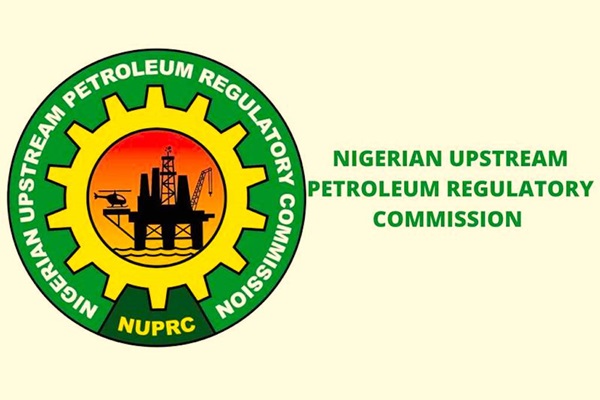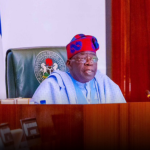The Upstream Asset Divestment Framework is being implemented, according to the Nigerian Upstream Petroleum Regulatory Commission (NUPRC), to facilitate the smooth non-destructive exit of divesting entities and to support sustainable operation for the acquiring parties.
In addition, the Nigerian National Petroleum Company (NNPC) Limited promised to help the Dangote Refinery and all other refineries in the nation in order to guarantee this.
This was announced by the Commission’s Chief Executive, Gbenga Komolafe, yesterday at the Nigeria Annual International Conference and Exhibition (NAICE) 2024, an energy conference that started in Lagos. “Petroleum Industry Value Chain Optimisation: The Inevitability of Midstream and Downstream Development” is the conference’s theme.
Enorense Amadasu, the Executive Commissioner for Development and Production, represented Komolafe at the ceremony. Komolafe stated that the commission was strengthening its partnership with the NMDPRA, its sister agency, and other important stakeholders in order to enhance end-to-end value in crucial operational areas.
Komolafe stated that the commission would improve alignments on the administration of the Domestic Gas Delivery Obligation and the Domestic Crude Supply Obligation to grow the sector in accordance with the provisions of the Petroleum Industry Act (PIA) 2021 in order to ensure robust development of oil and gas midstream operations.
He conveyed his belief that the commission’s endeavour to promote regulatory alignments in this regard would incite additional efforts towards ensuring domestic energy security.
“We are committed to entrenching collaboration for enhanced value to the industry and the nation at large, as we deliberate on the strategies and innovative approaches that will prepare the industry forward, let us remember that the optimisation of the midstream and downstream segments is not merely an option but inevitability.
“By focusing on this area, we can mitigate the risks associated with market volatility, enhance the refining capacities, and ensure a more stable and efficient energy security for our nation in the world undergoing change,” he stated.
The CCE stated that regardless of one’s personal opinions, the world is moving towards energy transition and emphasised the significance of taking deliberate steps to lessen its effects and prepare the country for a decarbonised future.
He emphasised that it is absolutely necessary to distribute the in-country value of the oil and gas resources through midstream and downstream operations.
Komolafe emphasised that while developing the frameworks necessary for midstream businesses to prosper and broaden the country’s economic base, real measures towards upstream decarbonisation must be implemented.
He revealed that the Commission has implemented the current regulatory framework for upstream decarbonisation and carbon monetisation in Nigeria with purposeful and conscientious efforts to position the upstream suitably.
Just then, he said, “The NUPRC is supporting decarbonisation initiatives to ensure environmental, social, and corporate governance principles while sustaining and growing investments in upstream oil and gas.”
In a similar spirit, Mele Kyari, the Group Chief Executive Officer of NNPC Limited, stated during a virtual speech at the conference that the company was establishing the infrastructure necessary to increase the use of domestic gas.
In Kyari’s opinion, the requirement for domestic petrol supply and the requirement for domestic crude oil delivery into the nation are not intended to ensure that the sector would succeed. “In reality, expanding the economy and market essentially entails a growing middle class within the nation,” he stated, underscoring the necessity of a strong midstream and downstream in the nation for this to occur.
According to him, the NNPCL is working nonstop to ensure that the energy-owned refineries start up so that the local petroleum product supply may be increased. “We also keep supporting other initiatives, such as the Dangote Refinery and a large number of upcoming smaller refineries. And we owe it to all of this to support it. In order to ensure that these companies run smoothly and contribute to our nation, we are leading the charge in providing support for them,” he said.
The PIA has made it clear that there will be an open access environment, which means that people can produce oil or gas and they would have access wherever their access capacity existed, he continued, adding that the NNPCL will continue to serve every industry in the nation in the midstream.
In addition to guaranteeing that all individuals have access to those facilities, Kyari stated that the NNPCL is undertaking a daring initiative by replacing all pipelines with a bill of return and transfer system, which is currently underway.
“We have a split contract with a number of partners, and this will clearly, at the end, deliver product near the store to consumers across the country, guaranteeing security for the country, and also guarantee use and accessibility to transport petroleum and drugs across the country”, he stated.
He revealed that the NNPCL has over 13 safety stations nationwide and has established a presence in every state, saying that the NNPC is still at the forefront of spearheading the process of establishing safety access so that vehicle fuel might now come from petrol.




